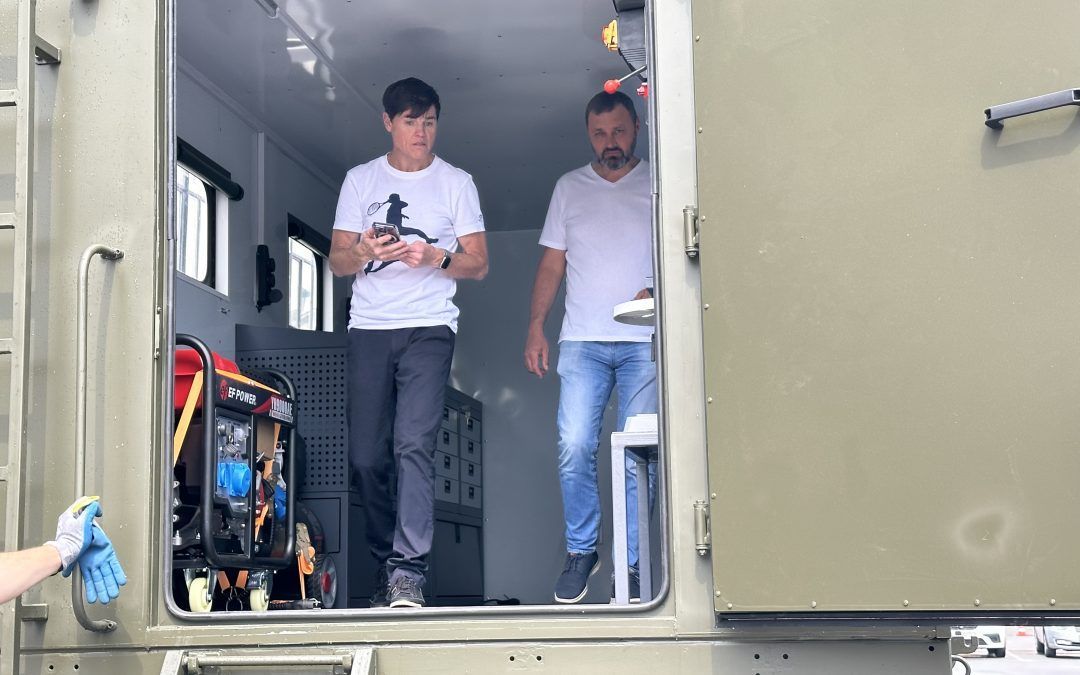Huddled in a tiny Ukrainian war bunker, there’s nothing to do but think. The air raid siren wails, the concrete walls are chillingly cold, and what really matters in life becomes clear.
An innocent voice breaks the silence.
“This is what we have to do when the siren sounds, Nan,” the eight-year-old girl whispers.
Watching on, an Australian man next to her drops his head.
“I just broke down,” says jockey Craig Williams. “My children get disappointed if the internet drops out or if it’s going to rain tomorrow … and this eight-year-old child was explaining to her Nan what she has to do in an air raid siren in the hope she’s going to live.”
Most men can spend their life running from the problems that follow them. Others prefer to spend their life chasing solutions to the problems of others – even if it means endangering their own lives. Inside that bunker, Williams realised he had a new purpose in life.
For more than a year, Williams, one of the country’s most well-paid athletes as a winner of the Melbourne Cup and The Everest, his Ukrainian-born wife Larysa and a team of assistants has been making clandestine trips to the country to provide urgent medical equipment, supplies and other aid to troops and civilians on the front line. His last visit was only a few months ago. In 14 days, Williams had to scramble into a war bunker 14 times.
How did he end up there?
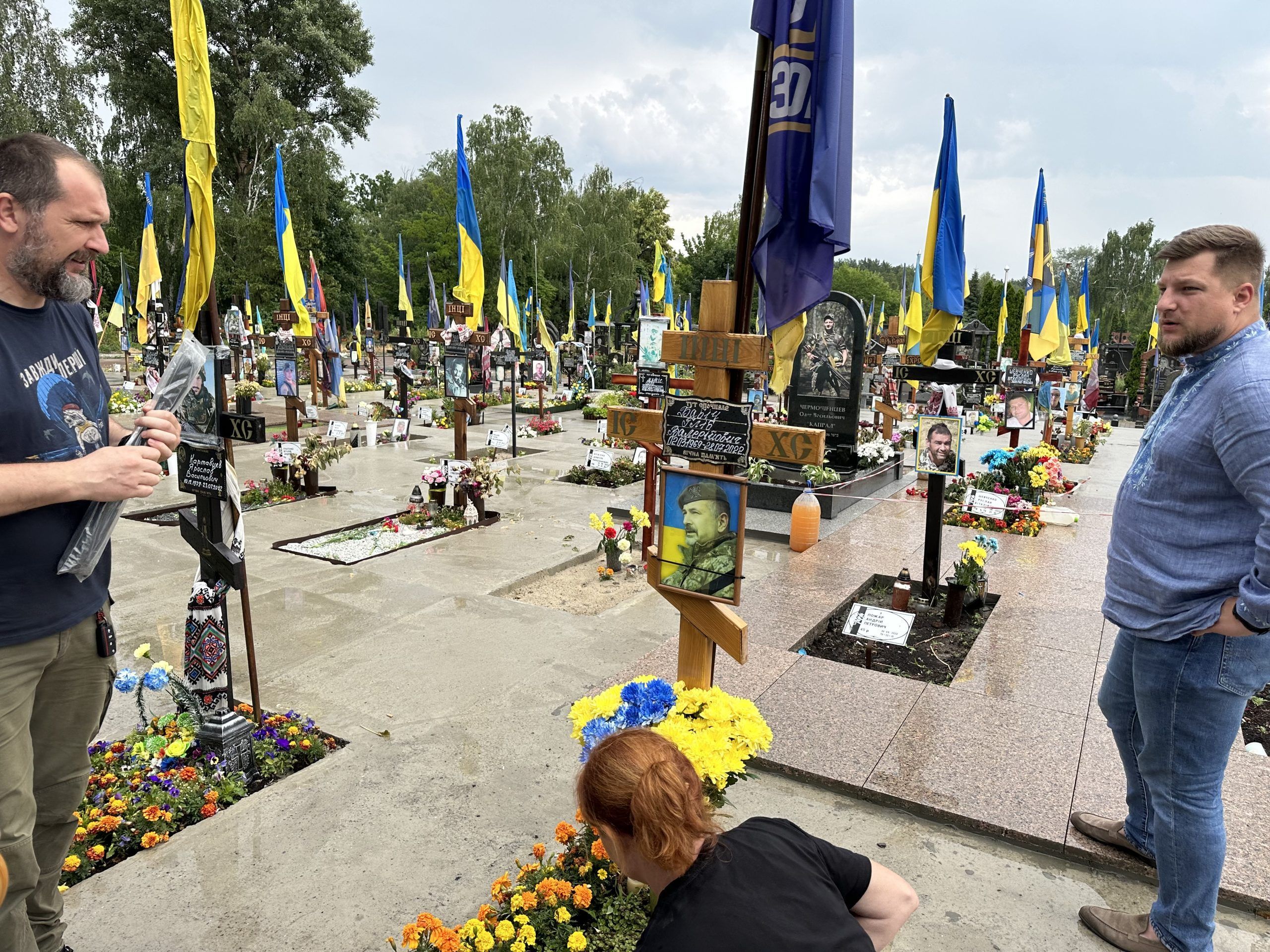
On a balmy Melbourne night in early 2022, Williams and Larysa wandered into Melbourne’s Federation Square to show support for Larysa’s homeland after war broke out in eastern Europe. It might have been enough for most people. But Williams is not like most people.
The idea began small.
“When I started to ask about trauma kits, I thought I would go down to Chemist Warehouse and see what they could do,” Williams says.
That was before he knew what was really needed. His adviser and security detail, Tim, sent a 26-page email which explained what is actually required for trauma kits: Israeli bandages, QuikClot, tourniquets, staples, staple guns and the like.
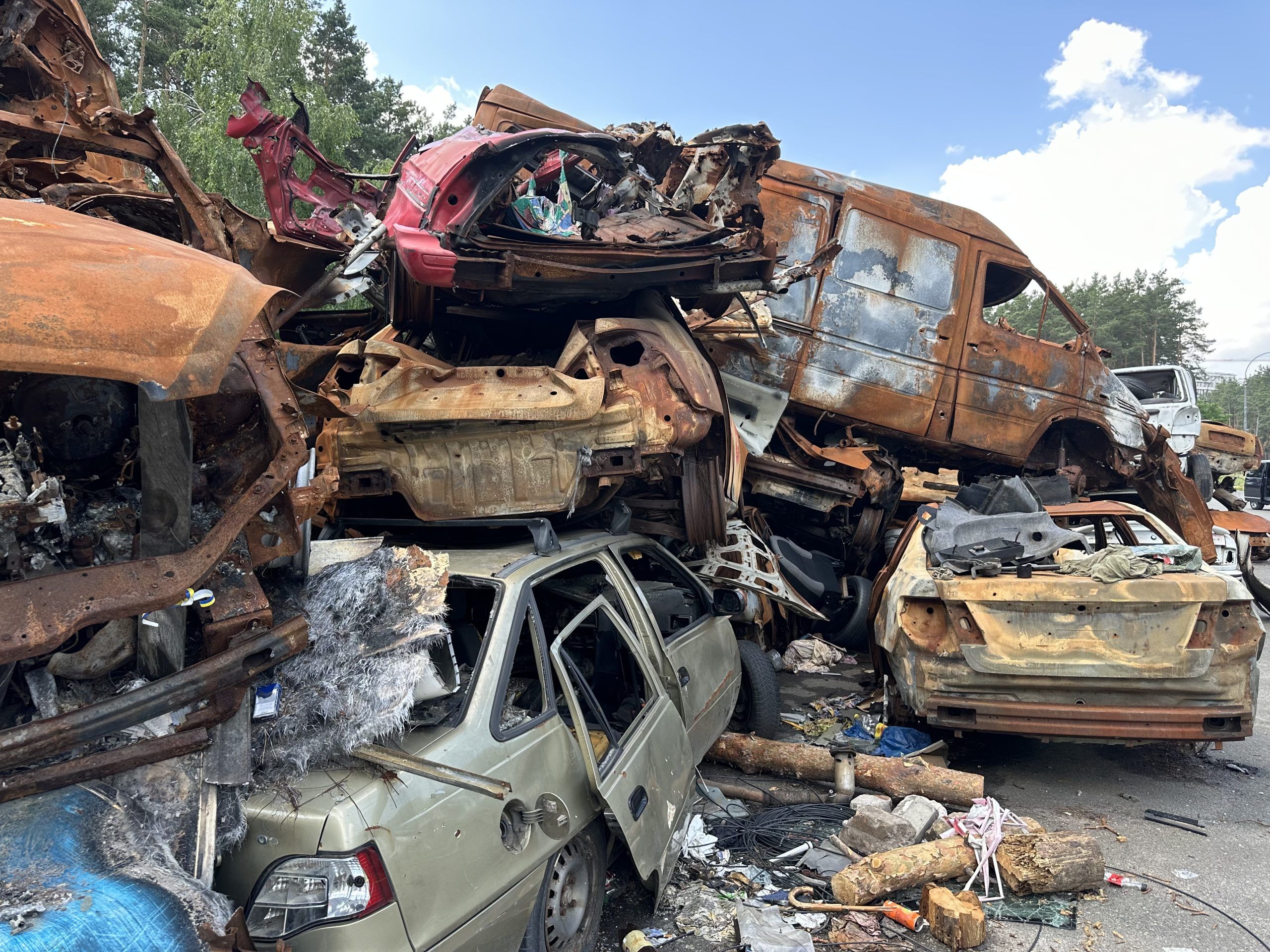
“We’re not talking about paper cuts, band-aids or blistex,” Williams says. “They don’t have 26 minutes to stitch people up on the front line. It opened our eyes to something a lot different to what we’ve ever had to deal with.”
He spoke to his accountant about raising money for Ukraine, who said donations should be made through the jockey’s own website. Williams was told $50,000 would be a good fundraising target. He was interviewed on breakfast television the next day, having wrestled with the idea of making his charity efforts public.
“And I said $100,000,” Williams laughs. “I always like to aim high.”
The tally now stands at more than $2.2 million.
“We wouldn’t have been able to do it without predominantly the support of the thoroughbred racing industry, but we get donations from pensioners who send $13 or $25 every two weeks,” Williams says. “The worst part is I don’t have an email to thank them, or I can’t walk up to them in the street.”
But those on the streets of Ukraine thank him.
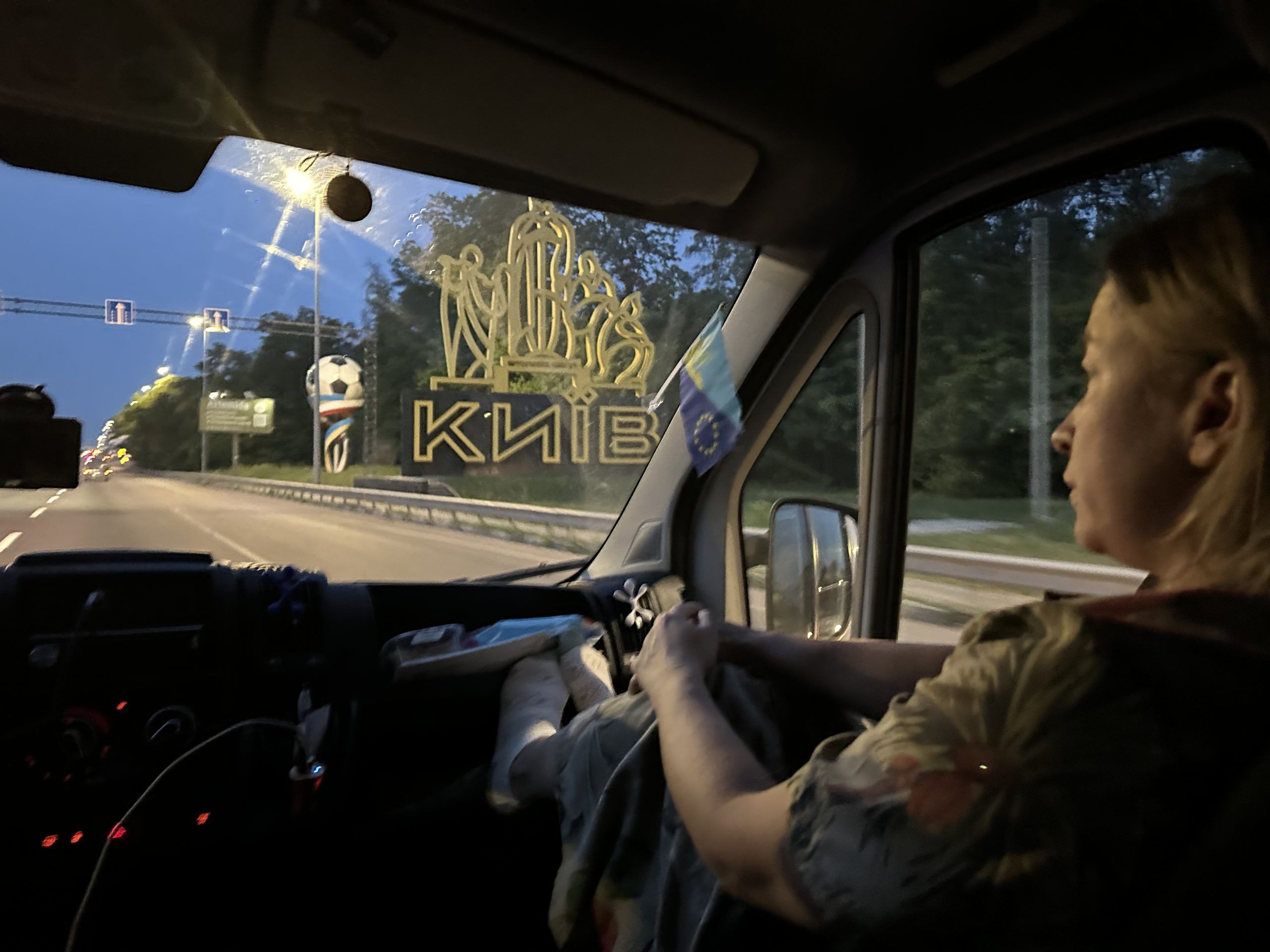
It’s hard to comprehend what goes through someone’s mind when they enter a country at war for the first time. Williams’ maiden visit last year involved crossing the border through Poland in the dead of night, and dropping supplies to civilian fighters.
“You went 400 metres to the Ukrainian side, and you think, ‘Oh my goodness’,” Williams says. “You could feel the difference. Young men and women, old men and women, they have automatic guns – and they’re out. You could feel the heaviness in the air, the enormity of war, and a next door neighbour not at war.
“But I wasn’t scared.”
Each time Williams has seen the horrors of war: blood-stained and burnt out school buses and civilian vehicles riddled with bullet holes; the ruins of apartment buildings; guns pointed at his vehicle as his convoy approach checkpoints at each village or town; the sheer terror of air raid warnings; children left with nothing other than what’s in a plastic bag.
Then there is the inevitable.
At Bucha, a town 25 minutes outside of Kyiv, a grave site is behind the local church. The area was captured by the advancing Russians for about two months. The local priest asked enemy forces if he could at least take the estimated 400 Ukrainian bodies off the streets to be buried in a makeshift cemetery behind the church. Almost half of them couldn’t be identified.
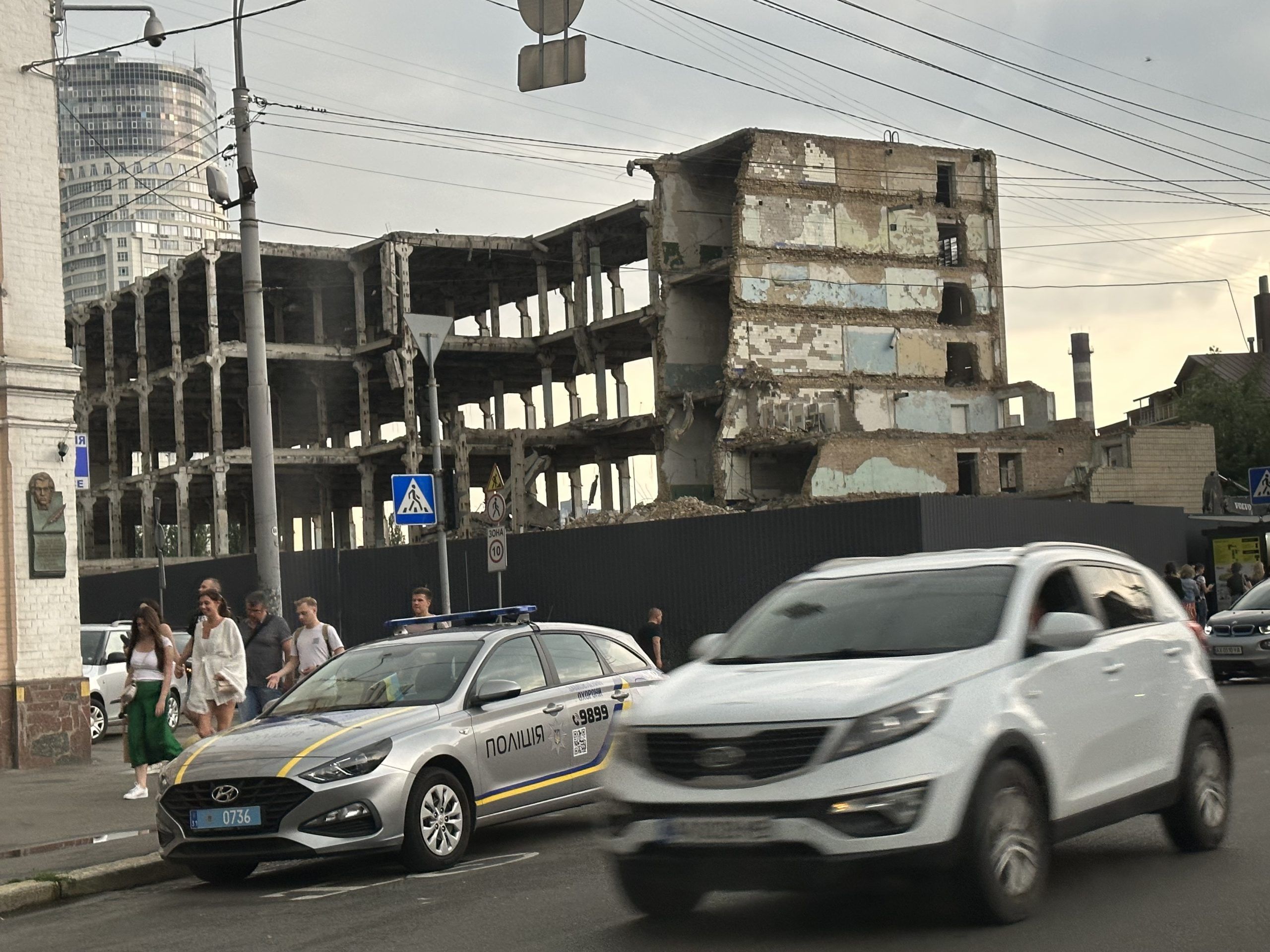
“Then you realise during this particular war, the Russian Federation’s reach is the whole of Ukraine,” Williams says. “Everyone’s a target.”
The main recipients of Williams’ charity, which now includes a partnership with Rotary Australia, is a particular Ukrainian fighter group. Williams met the organisation’s leader on one visit. A couple of months later, Williams was told the leader had been killed during fighting. The man’s mother had already been displaced and had moved to Australia, and when Williams learned about this through social media, spoke with Larysa. She agreed to chaperone the woman back to Ukraine to bury her son, who could barely be identified due to his horrific injuries. The mother’s birthday is this Sunday.
“There’s nothing more traumatic than burying a child,” Williams says. “It was the right thing for us to do.”
Since then, due to the enormous money raised, Williams and his crew have been able to buy four vehicles in Poland which have been repurposed as ambulances. They’ve also progressed to generators, which are used to power mobile hospitals, bakeries and showers, so as not to be permanent targets for the Russians.
But still those closest to him worry.
Williams’ father, ex-jockey Allan, sat him down a few months ago for a conversation he’d been thinking about for a while.
“Do you have to keep going to Ukraine?”
“I have to go,” Craig said. “I don’t have a choice.”
Williams pauses.
“You’re contributing to saving someone’s life,” he says. “Why is anyone’s life more important than mine?”
